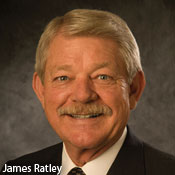ACFE President Offers Career Advice

" Top Skills Needed
FIELD: What do you see as the most critical skills for the people getting into the field now?
RATLEY: I gave some thought to that because I've been asked that many times in the past. The fraud-examination field is comprised of a wealth of talent, but a wealth of specialized skills. We have attorneys that are involved in it. We have accountants that are involved in it. We have investigators, IT professionals. But the backbone of the fraud-examination profession is the investigative skills. And the more of these segments that you can put in your arsenal - the forensic IT specialists - there's a big demand for those now, someone that can come in and conduct an examination on a computer and retrieve deleted information. That's a very hot area right now. But if you take the forensic IT specialist and you provide them with investigative skills, they're even more sought after. The same thing with an auditor or a CPA - if you take an auditor or CPA and train them as an investigator, they're much, much more effective as a fraud examiner, and as a result they're in much greater demand."
This is part of a recent interview with Mr. Ratley, the ACFE president, ( see source below).
I think that as fraud and corruption became a global phenomenon, fraud examiners need to have collective skills that will make their activities more effective and efficient. In addition to what Ratley stated in the interview, I think a fraud examiner needs to have, among other personal skills, the following know how and skills:
- Internal control
- International business ( culture, values, and ethics)
- Due diligence
- Statistics
I would like to reiterate what Rately asserted and emphasized that the Investigative skills are at the core of the fraud examiner arsenal.